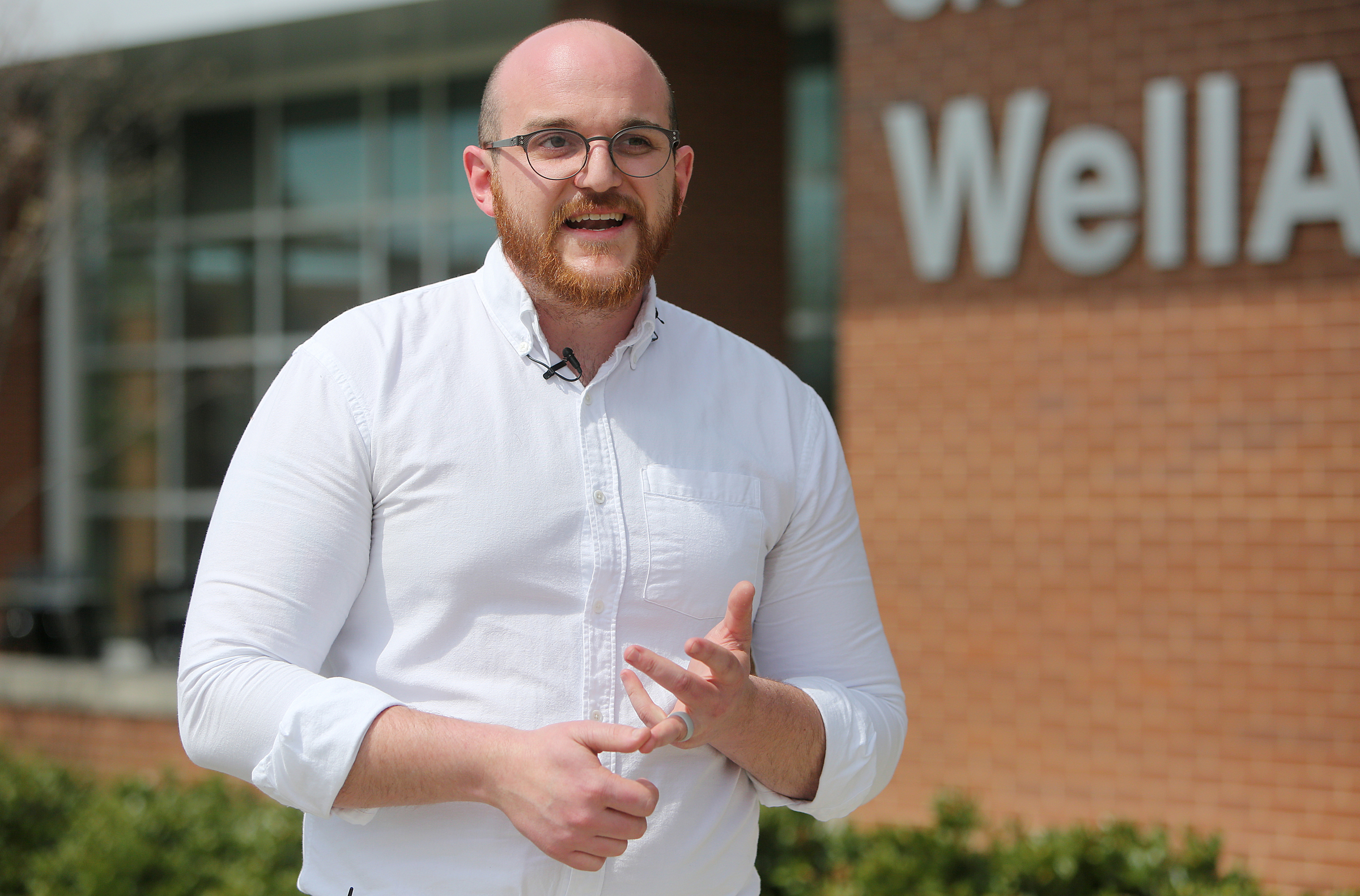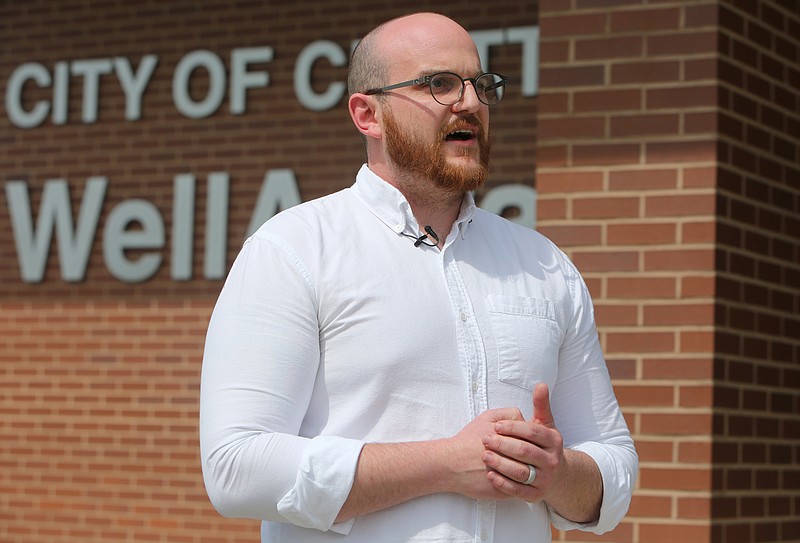As Chattanooga officials work to inform about 100 homeless people who have set up tents on a downtown lot they'll need to relocate, city council members said Monday they're looking at several options to address homelessness, including additional temporary or emergency housing.
"I'd like to see us do things instead of talking about doing things," Councilman Jerry Mitchell said. "I can't see an alternative to not finally pursuing something that would at least give some temporary housing."
Now that the property in the 600 block of East 11th Street behind a city-owned wellness center is known to be toxic, officials are telling about 100 homeless people who have set up tents there that they'll need to move over the next several days. Because the lot is just a block away from the Chattanooga Community Kitchen, it's a convenient place to live with close access to the support services offered by a handful of nearby agencies and nonprofit organizations.
The problem is that staff in Chattanooga Mayor Andy Berke's office recently revealed the soil in the lot itself is hazardous to human health after a long history of the site being used as a waste dump for a variety of old, local industries. Of particular concern are the remaining contaminants from a gasification plant, which polluted the area with coal tar and foundry sand.
Berke's office has coordinated with the Community Kitchen to reopen the organization's emergency cold weather shelter for two weeks to house those who call the polluted lot home while a "task force" of caseworkers and volunteers connect them with the services they need.
The shelter will reopen April 6, funded by an emergency allocation from the city, but in the meantime volunteers are talking with lot residents about the dangers of the site and what they can expect in the coming days.
"We didn't want it to be something where we just showed up and said, 'You have to leave,'" said Sam Wolfe, the city's homeless services coordinator, on Monday. "Right now, we're just giving people information."
Caseworkers and agency leaders will use those two weeks to find permanent housing solutions for as many people as possible. Wolfe said it's hard to estimate exactly how many people experience homelessness on any given night in Chattanooga, but he believes the lot on East 11th Street holds about 10 percent of the population.
"We're working with the Chattanooga Housing Authority to see what units they might have available," he said. "The goal is to get as many people as we can get housed to reduce the overall homeless population."
Wolfe and other local experts have said on multiple occasions over the last several years that situations such as this underscore the need for more housing options and a year-round emergency shelter.
Such a project could come with a sizable price tag, depending on the proposal, but members of the Chattanooga City Council said they're looking at several options.
Mitchell said there are a variety of organizations and agencies already trying to meet the needs of Chattanooga's homeless population, but he thinks more could be done if those groups were better connected.
 Sam Wolfe, homeless program coordinator for the City of Chattanooga, speaks during a news conference at the Well Advantage Center Monday, April 2, 2018, in Chattanooga, Tenn. Wolfe gave an update about the progress to moving individuals living in an encampment behind the center and outreach efforts involved.
Sam Wolfe, homeless program coordinator for the City of Chattanooga, speaks during a news conference at the Well Advantage Center Monday, April 2, 2018, in Chattanooga, Tenn. Wolfe gave an update about the progress to moving individuals living in an encampment behind the center and outreach efforts involved."I know there are a lot of different agencies already dealing with homelessness. I'd like to see it better coordinated and better equipped."
Councilman Chip Henderson's thinking is similar to Mitchell's regarding the problem, which he considers a perennial issue affecting all of Hamilton County.
"I think every councilperson has some issue with homeless camps in their districts. I have some that are living under the bridge on [Interstate] 24, Cummings Highway. I get phone calls about that and other places in my district," he said. "It's an issue. You move them out of one place into another and it's just like the problem goes from one place to another."
He echoed Mitchell, saying the issue was a thorny one, but adding that a number of groups have already dedicated themselves to addressing homelessness in Chattanooga. He said he'd like to get those groups in a single room to hash out a plan for the future.
"There are lots of agencies that can help with the situation. What we've talked about doing is getting everyone to the table and not just operate in silos. I think that's the only way to do it is bring all the agencies to the table to have a piece of the wraparound services," he said.
"You just have to get them around the table and get them talking and see what resources are available."
The City Council is also set to consider a new ordinance today that would bar "aggressive" panhandling in places of "personal privacy" or "heightened safety concerns," according to the proposal coming before city officials.
No solicitations would be allowed within 20 feet of an ATM machine or a bank with an ATM, or near an open sidewalk cafe unless the owner permits. Solicitations would also be banned on high-speed and limited-access highways, entry and exit ramps, traffic medians or routes, including bridges where the posted speed limit is above 35 mph.
The Times Free Press reported previously that police could cite panhandlers who break the rules to court, where a judge could impose a fine of up to $50. Repeat violators could be targeted with injunctions, or police could charge aggressive beggars under a state law that carries a 30-day jail sentence.
Contact staff writer Emmett Gienapp at egienapp@timesfreepress.com or 423-757-6731. Follow him on Twitter @emmettgienapp.



